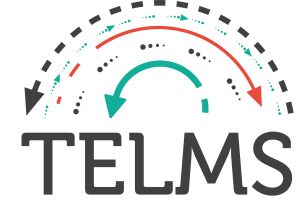Technology Enhanced Learning Mentoring Support
What is TELMS?
When referring to technology, Vocational Education and Training (VET) teachers will say that while it certainly presents opportunities for the sector, technology also presents challenges arising from its constantly evolving nature.
In order to maximise the impact of technology on teaching and learning, the VET workforce — including trainers and assessors in enterprises, adult community education and community organisations — must develop the skills and competences that allow for technology to be properly embedded into classroom practice.
A new pan-European project called Technology Enhanced Learning Mentoring Support (TELMS), aims to address the need for Technology Enhanced Learning (TEL) as part of VET education provision. It also recognises that teaching staff need to be supported in their efforts to embed technology into classroom practice.
Funded by the Erasmus + programme, the TELMS project is set to run for two years (until 2018) under the supervision of five project partners. H2 Learning, an Irish e-learning services and consultancy organisation is TELMS project manager. Four VET organisations are also partners; Irish VET College from the City of Dublin Education and Training Board (CDETB); SERC, a VET College in the UK; the Solski Centre, a VET School in Slovenia; and Malignani, a VET Technical Institute in Italy. This partnership, or consortium, brings a wide range of technological and pedagogical skills and knowledge to the TELMS project and all of the partners have varied experience in the integration of digital technology, professional development of staff and mentoring.
This innovative project goes beyond the mere functionality of education technology; it offers thorough pedagogical support and upskilling so that staff can fully realise the instructional potential of the technology to benefit learning and teaching.
TELMS Project Objective
The TELMS project consortium will jointly develop a programme which will enable the partners to explore how TEL can be embedded across the school curriculum. This programme will be developed using a peer-mentoring strategy and at the same time as staff undergo professional development in Information Communication Technology (ICT) methodologies.
TELMS Project Steps
- Partners to develop a Teacher Peer Mentoring Programme (Train the Teacher Programme – to build teacher capacity and ensure that they can mentor their peers in the utilisation of a range of appropriate technologies and associated digital learning strategies. The programme outlines the effective use of Information Learning Technology (ILT) and associated learning and teaching strategies.)
- Partners to develop a TELMS Teacher Toolkit (to support the training and provide valuable resources and guidance on implementation in the classroom).
- Partners to develop a TELMS Online Platform (to facilitate access to innovative training resources for TEL. Teachers will be encouraged to explore the resources and discuss their experiences of using the technologies and the effective implementation of the pedagogical strategies suggested through an online community forum).
- Eight mentors receive training at a transnational staff training event in Northern Ireland
- Partners support the eight mentors in establishing and delivering an ILT Pedagogy Mentoring Programme to 16 teachers in the partner institutions.
- To disseminate project outcomes across EU Member States.
TELMS Project Target Groups
- VET organisations and providers
- VET teachers
- VET learners
- Policy makers, research bodies and experts.
TELMS Outcomes
The TELMS project provides participating teachers and institutions access to new materials and resources that can support VET teachers’ professional development. Such professional development takes place through the implementation of each institution’s ILT Pedagogy Mentoring Programme. In the long term, through the embedding of this mentoring programme into institutions’ provision and professional development practices, it will eventually grow into a permanent and evolving tool that can be used for the ongoing professional development of VET teachers.
H2 Learning tasks within the project:
- Lead the project management,provide a range of supports including project management, leadership, online teaching pedagogy, technology, and finance & accounting to the project consortium.
- Contribute to project activities and participate in project meetings (face to face and virtual).
- Organise and host project meeting in Ireland
- Coordinate all activity, including the agreement on the overall project schedule of activities, delegation of tasks, progress on the implementation, review and valorisation.
- Establish a strategy for the project. Put in place a framework for development activities and ensure it is utilized to enhance collaboration, partner inputs, consensus building and review mechanisms.
- Lead the development of the Teacher Toolkit.
- Contribute to the development of the Teacher Peer Mentoring Programme and TELMS Online Platform
- Lead the quality assurance and evaluation process.
- Coordinate the study visit training event for mentors in the UK with support from SERC.
- Contribute to dissemination and exploitation of the project outcomes.
- Prepare and submit Interim and Final Report (content and financial parts) and provide any documentation and other reports as requested.
